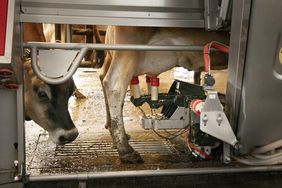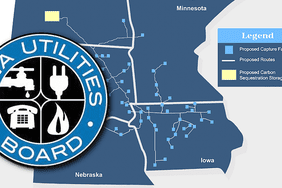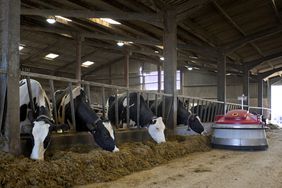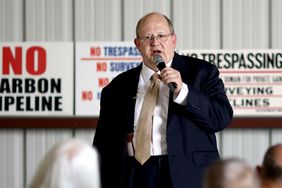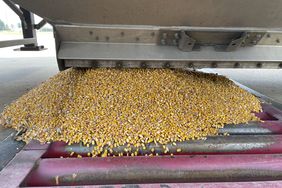:max_bytes(150000):strip_icc()/JohnDeereTractors-CloseUp-1-2000-1704098721d54dd0bce775efb2e7d1bd.jpg)
Deere & Co. has reached a tentative six-year agreement with the United Auto Workers union on Saturday, according to Reuters reports.
This is the second agreement – still tentative until ratified by the union in the weeks to come – and follows an early October pact that was rejected by 90% of UAW members.
The labor agreement impacts 10,100 employs at 14 Deere & Company facilities.
- READ MORE: Timeline of the Deere, UAW strike
Jen Hartmann, director of public relations for Deere, said the tentative agreement was reached after weeks of negotiations, and that it "honors our commitment to work with our employees to provide them with economic progress and a rewarding career." Some highlights provided by Deere:
- The typical production employee's annual wages all-in would increase from $60,000 today under the terms of the current contract to nearly $72,000 by the end of the tentative agreement. This is the equivalent of an hourly increase from about $33 per hour to nearly $40.
- Deere agreed that production and maintenance employees would retain precisely the same healthcare benefits.
- While healthcare costs are expected to rise from $12 to $17 per hour for John Deere over the contract term, employee healthcare costs will not go up.
- Deere said the tentative agreement is providing an entirely new retirement bonus and cash balance pension benefit. The typical employee would receive these new lump sum payments totaling nearly $134,000 at the end of a full career.
Shortages of steel, computer chips, tires, a variety of parts, etc., has stymied machinery manufacturers from meeting orders for new machinery, which have burgeoned since last winter.
It is not unusual for farmers to have to wait six months or longer to get a new tractor, combine, or planter.
Over 30 years have passed since Deere's last strike. Lasting five months, that labor dispute cost the company $100 million.



